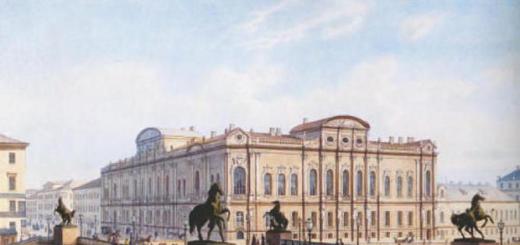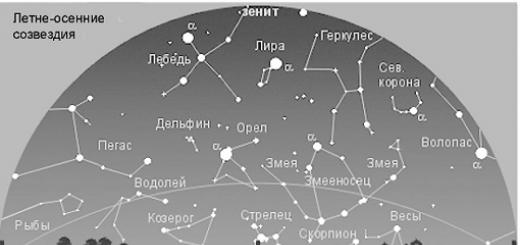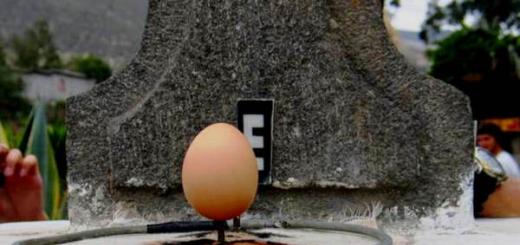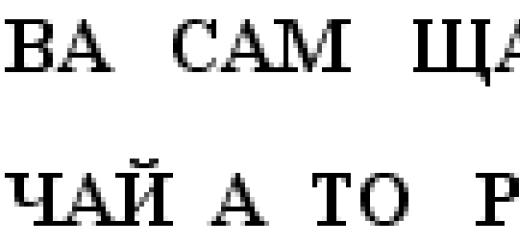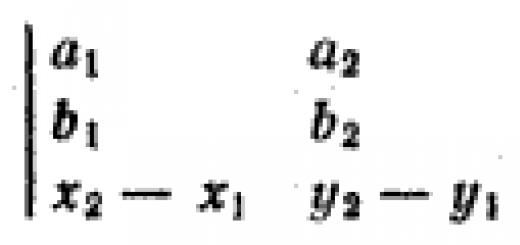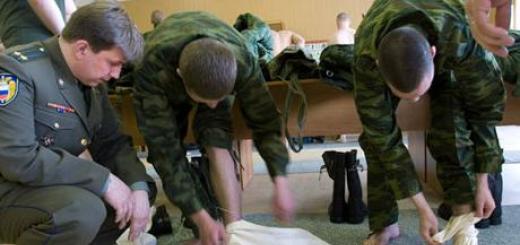Given with some abbreviations
1. General Provisions
The Constitution of the USSR, listing the courts operating in the USSR, names military tribunals in the Armed Forces (Article 151). This wording emphasizes the important, fundamental circumstance that the jurisdiction of military tribunals in the USSR can and does extend exclusively to persons in military service.
The Statute on military tribunals (as amended by the Law of the USSR of June 25, 1980) refers the military tribunal to the courts of the USSR that are part of the unified judicial system of the USSR (Article 1 of the Regulation). Sentences and decisions handed down by military tribunals are proclaimed in the name of the Union of Soviet Socialist Republics, regardless of the territory of which union republic the military tribunal operates.
The inclusion of military tribunals directly into the judicial system of the USSR, and not into the judicial system of the Union republics, is explained by those special tasks that (apart from the general tasks of justice formulated in the Fundamentals of the Legislation on the Judiciary) are assigned to military tribunals, namely, they are called upon to fight against encroachments on the security of the USSR, the combat effectiveness and readiness of its Armed Forces, military discipline and the procedure for performing military service established in the Armed Forces of the USSR.
Thus, the military tribunals are fighting criminal acts that affect the vital interests of the Soviet Union as a whole and of each union republic separately.
The organization of military tribunals not on the basis of territorial-administrative division, their inclusion in the number of courts of the USSR is also explained by the most important principle of the organization of the Armed Forces of the Soviet Union, with which military tribunals are closely connected: their unity, regardless of the location of a particular military unit or formation.
The indication contained in Article 1 of the Regulations on Military Tribunals that the military tribunals are part of the unified judicial system of the USSR is of exceptional importance. This means that the military tribunals are not some kind of system of judicial institutions isolated from the general courts. They are organized and operate on genuinely democratic principles common to all courts of the Soviet state: election, participation of people's assessors, public prosecutors and public defenders, collegial consideration of cases, publicity, the right of the accused to defense, etc.
Military tribunals are guided, like all other courts, by the Constitution of the USSR, the legislation of the USSR and the legislation of the Union republics.
The activities of the military tribunals are subject to the supervision of the Supreme Court of the USSR, just as the Supreme Court of the USSR exercises supervision, within the limits established by law, over the judicial bodies of the Union republics.
The guiding explanations of the Plenum of the Supreme Court of the USSR on the application of legislation in the consideration of court cases have the same force for military tribunals as for all judicial bodies of the USSR and the Union republics. This applies equally to guidance clarifications, both on issues common to all judicial institutions, and those that are relevant only to military tribunals (for example, the application of the War Crimes Act). All this taken together, not to mention the tasks and social composition of judges, fundamentally distinguishes the military tribunals of the USSR from military courts of various names in bourgeois states. There, these courts represent a special column of judicial institutions, isolated, as a rule, from the general judicial system. Special criminal and procedural laws have been issued for military courts, which are characterized by their repressiveness. The organization, management and control of military courts belong to the military or naval ministry.
The military courts in the bourgeois states are completed by appointing judges from the most reactionary sections of the regular officers, with a special stipulation that ordinary soldiers and sailors cannot be part of the military courts. On the whole, the military courts of the bourgeois states are a pronounced punitive apparatus that serves the purpose of maintaining hard discipline in the army and navy and the terrorist struggle against the manifestation of democratic, revolutionary opposition when the class struggle in the capitalist countries is aggravated. A clear example of this is the bloody activity of the courts in Chile.
Military tribunals in the USSR are organized on the basis of elections. The permanent composition of the military tribunals: chairmen, deputy chairmen and members is elected by the Presidium of the Supreme Soviet of the USSR for a period of five years. People's assessors are elected by general meetings of servicemen of military units by open vote for a term of two and a half years.
Citizens of the USSR who are in active military service and who have reached the age of 25 by election day may be elected to the positions of chairmen of the tribunal, vice-chairmen and members.
Every citizen of the USSR who is in active military service may be elected a people's assessor of a military tribunal. During the performance of their duties in court, people's assessors have all the rights of a judge - this general principle also applies to people's assessors in military tribunals.
The statute on military tribunals establishes that both the permanent and temporary composition of military tribunals is elected from among persons in active military service. This is explained by the fact that military tribunals, when considering cases of their jurisdiction, especially cases of military crimes, need not only legal knowledge and experience in judicial work, general political training, but also special ones. military knowledge: military regulations, orders, instructions, the procedure for performing military service, military equipment, living conditions and life of military personnel, without which in a number of cases it is impossible to make a legal, reasonable and fair sentence or decision.
The legislator, for reasons of principle, considered it necessary to introduce into the Regulations on military tribunals the constitutional principle of the independence of judges and their subordination only to the law, since military tribunals operate in the Armed Forces of the USSR, where the highest “principles are: consistent centralization, unity of command, subordination of subordinates to superiors, unquestioning obedience to orders of commanders and chiefs. “Judges and people's assessors of military tribunals are independent and subject only to the law,” says Article 8 of the Regulations.
This eliminates any possibility of interference by anyone in the direct judicial activities of the military tribunals.
The general guarantees of the independence of judges and their subordination only to the law, established in the USSR, also apply to judges of military tribunals.
Consideration of criminal and civil cases in military tribunals is carried out jointly. In the court of first instance, criminal and civil cases are considered in the composition of a judge (chairman, deputy chairman or member of the military tribunal) and two people's assessors. Consideration of cases by the military tribunal in the cassation and supervisory procedure is carried out in the composition of three judges of the military tribunal.
Chairmen, deputy chairmen and members of military tribunals can only be recalled by the bodies that elected them, i.e., the Presidium of the Supreme Soviet of the USSR, and people's assessors - by general meetings of military personnel who elected them. The procedure for holding meetings of servicemen for the election and recall of people's assessors of military tribunals is determined by the USSR Ministry of Justice jointly with the USSR Ministry of Defense.
The chairmen, deputy chairmen and members of military tribunals cannot be prosecuted, removed from office or arrested without the consent of the Presidium of the Supreme Soviet of the USSR.
2) Jurisdiction of cases to military tribunals
The system of military tribunals is as follows:
1. Military tribunals of armies, flotillas, formations and garrisons - the first links. These tribunals are courts of first instance only.
2. Military tribunals of districts, fleets, groups of troops, branches of the Armed Forces - the second links. They have the powers of the courts of first instance, as well as cassation and supervisory over the tribunals of the first links.
The highest authority in the system of military tribunals is the Military Collegium of the Supreme Court of the USSR.
Military tribunals consider:
1) cases of all crimes committed by military personnel, as well as those liable for military service during their training;
2) cases of all crimes committed by officers, warrant officers, midshipmen, sergeants, foremen, soldiers and sailors of state security bodies;
3) cases of crimes against the established order of service, committed by persons in command of correctional labor institutions;
4) all cases of espionage;
5) cases of crimes committed by persons in respect of which there is a special indication in the legislation of the USSR.
In areas where, due to exceptional circumstances, general courts do not operate, military tribunals consider all criminal and civil cases (Article 12 of the Regulations).
The current Regulation on military tribunals establishes that military tribunals, together with criminal cases, consider civil claims of military units, state enterprises, institutions and organizations, collective farms, other cooperative organizations, their associations, other public organizations, as well as citizens for compensation for material damage caused to them crimes.
The assignment to the jurisdiction of military tribunals of cases not only of military, but also of all other crimes committed by military personnel liable for military service during their training, as well as by officers, sergeants and privates of state security bodies, is explained by the fact that in each crime of a person who is in military service, or equivalent to it, contains elements of violation of military duty and discipline, the fight against which is the direct responsibility of the tribunals.
Here it is necessary to point out the following principle of delimitation of jurisdiction between military tribunals and general territorial courts: when one person or group of persons is accused of committing several crimes, if the case of at least one of the crimes is within the jurisdiction of a military tribunal, and of others - by any other court, the case of all crimes are tried by a military tribunal. When a group of persons is accused of committing one or more crimes, if the case in respect of at least one of the accused is within the jurisdiction of a military tribunal, and in respect of the rest - to any other court, the case in relation to all the accused is considered by a military tribunal (Article 14 of the Regulations on military tribunals) .
Jurisdiction of cases to military tribunals is also regulated by the sign of the military rank and official position of persons in military service.
Thus, the military tribunals of armies, flotillas, formations and garrisons have jurisdiction over cases of crimes of persons with military ranks up to and including lieutenant colonel and captain of the 2nd rank, as well as all civil cases in cases provided for in Article 12 of the Regulations.
The military tribunals of districts, groups of troops, fleets and types of the Armed Forces have jurisdiction over: a) cases of crimes of persons with the military ranks of colonel and captain of the 1st rank; b) cases of crimes of persons holding positions from the commander of the regiment, the commander of the ship of the 1st rank and above, and their equal in official position; the same tribunals have jurisdiction over the most serious crimes - those for which, in peacetime, the law provides for the death penalty.
The higher military tribunal and the Military Collegium of the Supreme Court of the USSR have the right to accept for their proceedings as a court of first instance any case under the jurisdiction of a lower military tribunal.
The chairman of the military tribunal or the member of the military tribunal as presiding officer and the people's assessors enjoy equal rights, and all questions arising in the course of the trial and the passing of a sentence or decision are decided by a majority of votes in full equality, regardless of differences in military rank and position. In addition to direct activities for the administration of justice, military tribunals do a lot of work on legal propaganda in military units and institutions, on the legal education of military personnel through lectures and reports, conversations, organizing legal knowledge corners, legal advice, etc.
For educational purposes - and they are given exceptional importance in the activities of military tribunals, most cases at first instance are considered by military tribunals in off-site meetings with the participation of public prosecutors, public defenders, followed by coverage of the trials in newspapers and leaflets published in military units.
For the same purposes, in military tribunals and in the military prosecutor's office, much attention is paid to the culture of legal proceedings in the broad sense of the word: a clear organization of processes, the strictest observance of the norms of procedural and substantive law, the issuance of motivated sentences and decisions set out in a language accessible to the general army masses.
3) Supervision of the judicial activities of military tribunals
Supervision of the judicial activities of military tribunals is carried out by the Supreme Court of the USSR, as well as military tribunals of the branches of the Armed Forces of the USSR, districts, groups of troops and fleets within their competence (Article 21 of the Regulations).
In the Supreme Court of the USSR, the Plenum of the Supreme Court, as the highest supervisory authority for all judicial institutions of the USSR, and the Military Collegium have supervisory powers in relation to the tribunals.
The military tribunals of the services of the Armed Forces of the USSR, districts, groups of troops and fleets consider in cassation the sentences, decisions and rulings of the military tribunals of armies, flotillas, formations and garrisons. They also have supervisory powers in relation to the named lower military tribunals. As supervisory instances, the military tribunals of the services of the Armed Forces of the USSR, districts, groups of troops and fleets consider sentences that have entered into legal force, decisions and rulings of the military tribunals of armies, flotillas, formations, garrisons.
Supervisory protests are authorized to be lodged by the Chairman of the Supreme Court of the USSR, the Prosecutor General of the USSR, their deputies, the Chairman of the Military Collegium of the Supreme Court of the USSR, the Chief Military Prosecutor, his deputies, the chairmen of military tribunals and military prosecutors of the services of the Armed Forces of the USSR, districts, groups of troops and fleets.
The same persons were granted the right to demand court cases for verification by way of supervision, as well as for studying and summarizing judicial practice and analyzing judicial statistics, monitoring the implementation by military tribunals of the guidelines of the Plenum of the Supreme Court of the USSR, using the results of this activity in order to ensure the correct and uniform application laws in the administration of justice.
The chairmen of the military tribunals of the services of the Armed Forces of the USSR, districts, groups of troops, fleets, armies and flotillas inform the relevant military councils about issues arising from the activities of the military tribunals, and the chairmen of the military tribunals of formations and garrisons - the corresponding military command and political agencies.
This form of interaction is especially important for the purpose of quickly and completely eliminating the causes and conditions conducive to the commission of offenses and strengthening socialist legality in the Armed Forces of the USSR.
The structure and staffing of military tribunals and the Department of Military Tribunals of the USSR Ministry of Justice are determined by the USSR Ministry of Justice jointly with the USSR Ministry of Defense.
Officers, warrant officers, midshipmen, sergeants and foremen of military tribunals are on active military service and they are subject to the provisions on military service, military regulations and orders of the USSR Ministry of Defense, which determine the procedure for serving.
The Statute on Military Tribunals regulates in detail the procedure for conferring the military ranks of junior and senior officers of the military tribunals, as well as the military rank of general (parts 2 and 3, article 31).
The personnel of military tribunals, the Office of Military Tribunals of the USSR Ministry of Justice and the Military Collegium of the Supreme Court of the USSR are part of the staff of the Armed Forces of the USSR and are provided with all types of allowances on an equal basis with the personnel of military units and institutions of the USSR Ministry of Defense.
The material and technical supply, financing, provision of transport, means of communication for military tribunals, the Military Collegium of the Supreme Court of the USSR and the Office of Military Tribunals of the USSR Ministry of Justice are assigned to the corresponding institutions of the USSR Ministry of Defense.
One of the main decisions that influenced the judicial system of the Soviet Union during the war years was the Decree of the Presidium of the Supreme Soviet of the USSR of June 22, 1941 "On martial law" Internet resource: http://www.libussr.ru/doc_ussr/ussr_4318.htm (accessed 23.03.2017). Changes were expressed in the following aspects. Firstly, in the territories declared under martial law, institutions of military power were organized, in the hands of which were emergency powers to maintain order and state security. Moreover, the military authorities could independently transfer cases, bypassing general courts, to military tribunals. As for the latter, according to the Decree, their powers were expanded, which subsequently led to the fact that even “civil disputes” were considered there. See: Bondarenko D.V. Decree. op. P.31.
The second important change introduced by the Decree was the expansion of the jurisdiction of the military justice bodies, i.e. tribunals. First of all, crimes directed against state security and aimed at violating public order fell under the jurisdiction of the tribunals. Moreover, according to paragraph 9 of the Decree, citizens convicted by the tribunal could not appeal the verdict in cassation. All completed criminal cases were sent to higher tribunals, but, as Kodintsev notes in his work, “after an immediate verdict, this no longer mattered much.” Kodintsev. Decree. op. S. 327. With regard to sentences with capital punishment, they were all sent to the military collegium of the Supreme Court of the USSR and carried out after 72 hours, if no response was received. Considering the volume of incoming cases, it is easy to assume how much the military collegium or the prosecutor's office could actually review the cases in a supervisory manner.
Modern researchers in their works, as a rule, evaluate the work of military tribunals during the war years as unsatisfactory. In the very reports on the work of the military tribunals, one can find a serious abuse of capital punishment. So, for example, according to the statistics of sentences of the tribunals of the Transcaucasian Front, the military collegium of the Supreme Court of the USSR canceled 60% of sentences to CMN. GARF. F. R9492. Op. 1a. 176. L. 39 And this is still a fairly high figure, in individual tribunals the percentage of sentences upheld in the second half of 1941 reached 6.7%, and in 1942 about 7.2%, which indicates the completely unsatisfactory work of military justice bodies .
According to the reports of various tribunals, capital punishment was most often abused by the courts in cases of embezzlement of military equipment, sometimes despite the fact that the theft itself was quite insignificant. So, the tribunal of the Transcaucasian Front sentenced the cook of the dining room, Sayfedinov, to death, who stole 400 grams of butter. GARF. F. R9492. Op. 1a. 176. L. 39 A similar case can be seen in the reports of the Pacific Fleet Tribunal, where servicemen Sazhin and Azarov were sentenced to death for stealing 200 grams of sugar and 400 grams of butter, respectively. And such descriptions of such cases are found everywhere in the reports on the work of the military tribunals. However, the misclassification of theft was not only in the direction of a heavier punishment. The same chairman of the military tribunal of the Orenburg railway, Mironov, sentenced loader Davlenbaev to capital punishment for stealing one pair of men's low shoes. Ibid. S. 71, but sentenced to only 2 years in prison without losing the rights of citizen Korobkov, who plundered about 2000 kg of coal and a sack of potatoes from the goods entrusted to him for transportation. Korobkov exchanged stolen items for food and sold them for money. There. P. 72 And again, such cases of incorrect qualification of cases and penalties are quite common.
Also, there are often examples of unreasonable application of capital punishment in cases of counter-revolutionary crimes. So, for example, the military tribunal of the Bryansk Front was convicted under Article 58-10, i.e. counter-revolutionary propaganda and agitation, to 8 years in prison with a defeat in the rights of the Red Army soldier Zaynalov for keeping a German leaflet in which he wrapped soap for several days. It is important to note that the serviceman was a Kalmyk by nationality, and, as noted in the case file, he did not speak Russian at all. GA RF. F. R9492. Op. 1a. D. 177. L. 247. An unfounded accusation without a detailed examination of all the components of the case was not uncommon for military tribunals. For example, when checking the work of the military tribunals of the Stalingrad Front, numerous cases of unjustified conviction in cases of state crimes were revealed. For example, under the chairmanship of military lawyer Kuznetsov, a military tribunal sentenced to capital punishment under Art. 58-1 of the Red Army soldiers Leonov and Pleshakov, whose entire fault was that they raised "two fascist leaflets, of which they used as smoking paper." GA RF. F. R9492. Op. 1a. D. 177. L. 35
In addition to violations in the conduct of the investigative order, the employees of the tribunals also committed violations of the disciplinary order. For example, one of such cases is group drunkenness by members of the military tribunal of the NKVD troops, recorded in the internal correspondence of the NKJU of the USSR, during which they were detained by servicemen of the border regiment. As reported in the report, "they committed an act unworthy of the employees of the military tribunal and discredited themselves in the eyes of the military and the population." There. L. 7.
A rather curious case is the judicial practice of military tribunals in relation to subjects of allied states. One can see how a liberal policy was pursued in relation to the accused foreigners on the example of the work of the military tribunal of the Murmansk basin, where a large number of foreign ships were located. For hooligan crimes, foreigners were sentenced by the tribunals to either a suspended sentence or were limited to fines. For example, the oiler of the Polish steamship "Tobruk" T.V. Leiter, a Polish citizen, on March 19, 1943, in the interclub of the city of Murmansk, beat up a Soviet engineer B.V. Chirkov, as a result of which Chirkov temporarily lost his ability to work, wounded citizen V.I. Dombrovsky and caused material damage to Intreclub. For these hooligan antics, the military tribunal, when considering the case, released Leitersky from custody, limiting himself to a fine of 300 rubles. GA RF. F. R9492. Op. 1a. D. 300. L. 113. Another case, on March 26, 1943, a worker of the American steamer "Thomas Hutley", Spaniard Omido Fern, in the interclub of Murmansk, in a state of intoxication, molested women, beat the translator of the Interclub Khurgin, who offered Omido to leave the club and insultingly spoke about the Soviet Union. When following the police, Omido resisted, trying to disarm the policeman. Omido was released from custody with a suspended sentence of 2 years in prison. There.
The sailor of the English steamer "Empire Bard" Marrison Charles Leslie, an English citizen, on April 1, 1943, in the office of the director of the Murmansk Interclub, molested visitors with hooligan antics, started a fight with foreign sailors. When detained by the police, he resisted. Marrison was given a one-year suspended sentence and released from custody. GA RF. F. R9492. Op. 1a. D. 300. L. 113.
Considering the judicial practice of the justice authorities, both military and general, in relation to the citizens of the Soviet Union, the difference in the degree of sentences is striking.
It is also impossible not to bypass the plot concerning the judicial practice of military tribunals in areas declared under a state of siege. For example, the work of the Moscow Tribunal is indicative. It was organized in connection with the announcement on October 19, 1941 of Moscow in a state of siege - by the decision of the State Defense Committee of the USSR, the Moscow City Court from October 23, 1941 was reorganized into a military tribunal of the city of Moscow. There.
The number of those convicted by the military tribunal from 5429 people in December 1941 in January 1942 increased to 6120 people. A significant increase in the number of cases in January 1942 was given by cases of state crimes. So, according to Art. 58-10 received 141 cases in January 1942, compared with 53 in December 1941. GA RF. F. R9492. Op. 1a. D. 181. L. 179. This is explained by the transfer in January 1942 to the military tribunal of the city of Moscow of a significant number of those categories of cases on state crimes that were previously considered by a special meeting of the NKVD.
For treason under Article 58-1, the military tribunal of the city of Moscow in January 1942 brought 3 people. All were sentenced to death with confiscation of all property. According to s.58-1 "b" of the Criminal Code for January - 1 person, execution with confiscation of all property.
As regards the jurisprudence under Art. 58-10, then in January 141 people were prosecuted. Of these, 65 people were sentenced to capital punishment, and 68 people to imprisonment (65 people for 10 years and 3 people from 5 to 10 years.) Ibid.
Comparison of digital data on the punitive policy of the military tribunal of the city of Moscow under Art. 58-10 for January 1942, compared with other months (October - December 1941), gives grounds to make an entry about a significant increase in the punitive policy in January 1942. The percentage of those sentenced to capital punishment increased from 26% to 49%.
At the same time, in November-December 1941, 6 people were sentenced according to 58-10 to imprisonment for 5 years or less, in January 1942, out of 68 sentenced to imprisonment, 65 were sentenced to 10 years. GA RF. F. R9492. Op. 1a. D. 181. L. 179.
Comparison of the data of receipt of cases to the military tribunal of the city of Moscow under Article 58-10 part 2. of the Criminal Code for the first and second half of 1942 and the first half of 1943 shows that in the second half of 1942, compared with the first half of the same year, there was a sharp decrease in the number of cases. The number of people recruited from 1268 people in the 1st half of 1942, in the 2nd half of 1942, decreased to 875 people, or by 31%. GA RF. F. R9492. Op. 1a. D. 300. L. 229
In the 1st half of 1943, the number of persons involved under Article 58-10 Part 2. of the Criminal Code for counter-revolutionary agitation continued to decline - instead of 875 people recruited in the 2nd half of 1942, in the 1st half of 1943 only 389 people were recruited or 486 people less - by 55% than in the 2nd half of 1942. As will be seen in the next chapter, devoted to the judicial practice of general courts, such a trend was observed in all judicial bodies of the RSFSR during this period.
Of the 389 involved, 368 people were convicted - 94%, acquitted for 6 hours - 2%, the case was dismissed against 15 people. - 4%, of which 11 were involved due to insanity and 4 because of the death of the accused. 1%, to imprisonment for a period of 10 years - 108 people, i.e. 26%, from 6 to 10 - 225 people, i.e. 65%, for 5 years 31 people - 8%. There. S. 232.
The organization and operation of the military tribunals that existed in the USSR before the war, having undergone some changes during the war, turned out to be quite adapted to fulfill the tasks assigned to them by the great Stalin of a merciless fight against all sorts of disorganizers of the rear, deserters, alarmists, spreaders of rumors, spies, saboteurs etc.
The first test of the combat readiness of military tribunals for work in the conditions of modern warfare was carried out in 1939-1940. in the war with the White Finns.
As a result of the generalization of the experience of the military tribunals and military prosecutor's offices during these hostilities, draft regulations and instructions were developed.
Soon the work on the reorganization of the Soviet military justice was interrupted by the perfidious attack on our country by Hitlerite Germany, which despicably violated the non-aggression pact.
The Decree of 22 June 1941 "On martial law" significantly expanded the competence of military tribunals in areas declared under martial law. The decree, also dated June 22, 1941, approved the "Regulations on military tribunals operating in areas declared under martial law and in areas of military operations."
The regulation of June 22, 1941 determined a new way of recruiting military tribunals at the time of the date from the procedure established by the Law on the Judicial System. It introduced consideration of all cases
in military tribunals by three members of the military tribunal without the participation of people's assessors, canceled the cassation appeal against the verdicts of the military tribunals in the localities, “6 declared under martial law, etc.
The jurisdiction of ______ certain types was determined
military tribunals. The “Regulations” emphasized the need for close ties between the military justice bodies and the command, obliging the chairmen of the military tribunals to periodically inform the military councils and commanders of formations about their fight against crime.
Subsequent Decrees of the Presidium of the Supreme Soviet of the USSR on the work of military tribunals during the Great Patriotic War mainly established new categories of cases under the jurisdiction of military tribunals (Decree of July 6, 1941 “On the spread of false rumors that arouse alarm among the population in wartime”, Decree of December 26, 1941 "On the responsibility of workers and employees for unauthorized departure (desertion) from military industry enterprises", etc.), or they were related to the procedure for approving sentences of military tribunals - with capital punishment.
The declaration of a number of areas of the USSR under martial law and the increase in connection with this in the number of cases on crimes of citizens considered by military tribunals necessitated the organization of military tribunals of the NKVD troops in almost all regions, territories and the Autonomous Soviet Socialist Republic, and in the second half of 1944 to speed up the consideration of cases under the Decree December 26, 1941, in addition, in many large industrial centers.
In accordance with the Regulations on military tribunals of June 22, 1941, in areas declared under martial law, the linear courts of railways and water basins were reorganized into military tribunals from the first days of the war. From the beginning of 1942, all line courts of railways and most of the line courts of water basins were reorganized into military tribunals.
In connection with the introduction of martial law in the sea and river fleet on May 9, 1943, all transport justice was transformed into a military one.
The main tasks of Soviet military justice were defined in the first period of the Great Patriotic War in the historic speech of Comrade Stalin on the radio on July 3, 1941. country, and renounced complacency, carelessness, the mood of peaceful construction ... "1. The fulfillment of this instruction of the leader also fell on the military tribunals, since the immediate reorganization of all work on a military footing, the subordination of everything to the interests of the front and the tasks of organizing the defeat of the enemy required the most decisive struggle against all those who, due to their carelessness, disorganization, violation of labor discipline, etc. hindered the strengthening of the rear of our Armed Forces. It was the military tribunals that, under the Decree of June 22, 1941, “On Martial Law” and a number of other Decrees, were entrusted with the consideration of cases of crimes directly or indirectly aimed at undermining the defense power of the Soviet socialist state (cases of unauthorized withdrawal from military industry enterprises, disclosure of state secrets, etc.).
“It is necessary, further,” Comrade Stalin continued in the same speech, “that there be no place in our ranks for whiners and cowards, alarmists and deserters, that our people do not know fear in the struggle and selflessly go to our patriotic war of liberation against the fascist enslavers. . The great Lenin, who created our State, said that the main quality of the Soviet people should be courage, courage, ignorance of fear in the struggle, readiness to fight together with the people against the enemies of our homeland. It is necessary that this magnificent quality of a Bolshevik become the property of millions and millions of the Red Army, our Red Navy and all the peoples of the Soviet Union ... We must organize a merciless struggle against all sorts of disorganizers of the rear, deserters, alarmists, spreaders of rumors, destroy spies, saboteurs. .. It is necessary to immediately bring to trial the Military Tribunal all those who, with their alarmism and cowardice, interfere with the cause of defense, regardless of their faces.
The military tribunals made these instructions of their beloved leader the basis of their activities, contributing a lot to establishing greater order and organization both at the front and in the rear.
In a number of other speeches and reports, as well as in the orders of the Supreme Commander-in-Chief, Comrade Stalin defined the main tasks facing our Armed Forces, the entire Soviet people, and thus the military tribunals in one or another period of the Great Patriotic War. Separate orders of the Supreme Commander-in-Chief and People's Commissar of Defense of the USSR Generalissimo of the Soviet Union Comrade Stalin contained direct instructions on the work of military justice.
The main requirement during the struggle against the Nazi invaders, presented by Comrade Stalin to the entire composition of the Armed Forces - increased discipline - not only applied to the command and political agencies, but had a direct bearing on Soviet military justice.
Comrade Stalin, People's Commissar of Defense, in his order No. 345 of November 7, 1942, demanded "to strengthen iron discipline, the strictest order and unity of command in our army in every possible way..." ., No. 95, giving the task "to tirelessly improve combat skills and strengthen discipline, order and organization throughout the Red Army and in the Navy" . And again Comrade Stalin returned to this issue in the order of May 1, 1943, No. 195, demanding "that all our people and all institutions in the rear work smoothly and accurately, like a good clockwork." Comrade Stalin recalled the testament of the great Lenin: "Since the war turned out to be inevitable, everything is for the war, and the slightest licentiousness and lack of energy should be punished under the law of wartime."
The resolutions of the State Defense Committee headed by Comrade Stalin contained similar demands for strengthening discipline and organization both at the front and in the rear.
Fulfilling the instructions of Comrade Stalin, the Soviet military justice set its main tasks: 1) the fight against military and other crimes of military personnel, 2) the fight against disorganizers of the rear, 3) the fight against state crimes at the front and in the rear.
The main task of the military tribunals of the Armed Forces of the USSR was the struggle for the creation of the strictest order and iron discipline in military units and formations, in institutions, institutions and on ships.
Military tribunals used severe penalties against cowards and alarmists who violated military discipline and left their positions without an order.
Military tribunals did not allow softness in relation to deserters and self-mutilators who maliciously evaded in a combat situation from fulfilling their duty to the Soviet Motherland. Against the backdrop of the fiery patriotic upsurge of our heroic army and its selfless deeds, which will forever remain unfading pages in the history of mankind, these crimes of singles, surrounded by universal contempt, required severe penalties. And the military tribunals applied these measures firmly and rigorously. This warned against committing such crimes other insufficiently stable people who could always end up in an army of many millions.
At the same time, the military tribunals, following the instructions of the People's Commissariat of Justice of the USSR, sought to prevent and in the vast majority of cases did not allow the template resolution of cases. In their activities, the military tribunals did not proceed only from an assessment of the facts on the basis of narrowly formal signs of the presence in the actions of the accused of a violation of one or another article of the criminal code, but also took into account the state of discipline and the combat capability of a given unit, unit, as well as other circumstances.
The Main Directorate of Military Tribunals of the NKJ of the USSR and the Military Collegium of the Supreme Court of the USSR have always fought against the practice of indiscriminate conviction of persons against whom disciplinary measures could be taken or sent (since 1942) to penal units.
The military tribunals of the Armed Forces of the USSR, flexibly and promptly resolving criminal cases, sought to ensure the timeliness, expediency and purposefulness of the judicial influence and the penalties applied so that, with a smaller number of convicts, the strictest order and iron discipline could be established in the units. Military tribunals, ensuring the speed of repression, which is so important in the conditions of military operations, conducted trials in the most important areas of the formation or unit, taking, together with the prosecutor's office and political agencies, all measures to ensure that the masses of military personnel were widely aware of the court verdicts. To this end, the chairmen and members of the military tribunals maintained direct contact with the command and political apparatus of their formations and units, comprehensively studied the life, activities and state of discipline in the units and units, took an active part in solving the combat tasks facing the unit by judicial methods.
Revealing during the trial certain negative phenomena (lack of proper accounting of property, negligent attitude towards its protection, etc.) in military units, military tribunals brought this to the attention of the higher command.
Along with this, there were some shortcomings in the work of the military tribunals. These shortcomings include the unjustified in some cases the use of repression where it was not necessary, where it could be limited to disciplinary measures. As already mentioned above, note 2 to Art. 28 of the Criminal Code.
In the first months of the war, some military tribunals operating in areas not declared under martial law passed sentences against persons who had committed crimes at the front or in areas declared under martial law without the right of cassation appeal. This practice was wrong, since the right to make final judgments, according to Art. 8 and 9 of the Decree of the Presidium of the Supreme Soviet of the USSR of June 22, 1941 "On Martial Law", belonged only to tribunals operating in areas declared under martial law and in areas of military operations. In this regard, the NKJ of the USSR and the Supreme Court of the USSR explained that military tribunals operating in areas not declared under martial law should pass sentences with the right of cassation appeal, regardless of where the crime was committed - at the front or in the area of operation of this military tribunal.
In the event that military tribunals operating in areas not declared under martial law passed sentences with capital punishment, the cases were to be sent to the Military Collegium of the Supreme Court of the USSR, regardless of the filing of a cassation complaint or protest.
There was sometimes a liberal approach in the application of repression for such categories of crimes, which in a particular situation required the most decisive measures to suppress this type of crime.
The governing bodies of military justice corrected individual shortcomings in the work of military tribunals, which most often occurred in the first period of the war, when the workers of the tribunals did not yet have sufficient experience.
In 1942-1943. military tribunals were faced with the task of intensifying the fight against those who tried to replace educational work among military personnel with repressive measures alone. Military tribunals dealt with all cases of unjust reprisals. This activity of the military tribunals helped to strengthen military discipline and improve the political and moral state in units and formations of the Armed Forces of the USSR.
During the Great Patriotic War, the army and navy had all sorts of property for colossal sums. Under these conditions, the activity of military tribunals to punish the plunderers of military property was of particular importance. And the military tribunals have done a lot to accomplish this task. The organization of trials with the participation of the parties in cases of theft and squandering of military property, with the involvement of a mass of military personnel in these processes, signaling to the command about the identified shortcomings in the conservation and protection of military property - all this contributed to the reduction of this category of crimes. Later, military tribunals, as already mentioned above, began to recover from convicts 12.5 times the cost of material damage caused by their actions, and then (1943) military tribunals also received the right to consider civil claims in certain categories of cases (om. above , Chapter XIV).
As the Soviet land was liberated, the tasks facing the military tribunals also changed, many crimes of the beginning of the war almost disappeared, but other types of crimes arose.
At the final stage of the war, when the doomed enemy, throwing his last forces into battle, resisted desperately in order to avoid severe retribution, when he grabbed the most extreme and vile means of struggle, all military tribunals were faced with the task of intensifying the struggle with carelessness, increasing the vigilance of our fighters and officers, to expose and punish saboteurs, terrorists, spies and other fascist scoundrels who remained in our rear. On the foreign territory occupied by our troops, the German command, police and military intelligence agencies left a considerable number of provocateurs, spies, terrorists and saboteurs, who sometimes disguised themselves as Soviet soldiers and officers and committed provocative acts against the civilian population in order to compromise the Soviet Army, and also carried out subversive activities in relation to military depots, communication lines, etc.
Under the ostentatious obsequiousness of local residents in the German territory occupied by our troops, hatred of the USSR and fear for the atrocities committed by fascist barbarians against prisoners of war, civilians and forcibly driven away Soviet citizens were often hidden, as a result of which military tribunals often had to consider cases committed by these "peaceful" attacks by citizens on individual Red Army soldiers, acts of sabotage, etc.
If we take into account that the Nazis, as established, prepared thousands of selected fascist scoundrels for underground work against the Soviet Army, it becomes clear that the military tribunals could not treat all cases of carelessness, sloppiness, talkativeness, loss of vigilance. Along with this, military tribunals more often began to consider cases of careless attitude to trophy property and its appropriation, as well as some other military crimes.
Another kind of task faced the military tribunals of railway and water transport. Providing a plan for military and other state transportation, combating theft of goods, establishing proper order and discipline in transport were the main tasks of the military transport tribunals.
The activities of another branch of Soviet military justice - the military tribunals of the NKVD troops - were even more diverse. Combating military and other crimes of the NKVD troops, official crimes of various paramilitary organizations (police, prison department, fire brigade, etc.), guarding the rear and front, guarding Soviet borders and punishing citizens for crimes punishable under wartime laws, - this is the shortest list of tasks facing the military tribunals of the NKVD troops. It suffices to point out, for example, that it was the military tribunals of the NKVD troops that considered such categories of cases as cases of evading military registration, conscription and mobilization, as well as cases of unauthorized departure of workers and employees from enterprises of the military and equated industries, in order to understand all the diversity cases that took place during the Great Patriotic War through these military courts.
Having successfully coped with its tasks, this branch of Soviet military justice contributed in its area of work to strengthening the rear of our country, raising its defense capability.
There were also some shortcomings in the work of some military tribunals of the NKVD troops. Thus, some military tribunals underestimated the special danger in war conditions of evading military registration, conscription and mobilization, applying mild penalties to those guilty of this crime; other tribunals, on the contrary, allowed a formal approach in establishing the guilt of the accused, convicting persons in respect of whom it was possible to limit themselves to disciplinary measures. Concealers were not always identified - persons who contributed to the evasion of military registration and mobilization. The terms of consideration of cases in some military tribunals were extremely long. Sentences for execution were not timely addressed, etc. The People's Commissariat of Justice of the USSR did not ensure the timely organization of the required number of military tribunals and their permanent sessions in large industrial areas, as a result of which there were delays in considering cases under the Decree of December 26, 1941 and in the circulation of sentences for execution .
In this regard, the government gave the People's Commissariat of Justice appropriate instructions, the implementation of which required a lot of hard work from the military tribunals of the NKVD troops, which yielded very positive results. Unauthorized withdrawal from the enterprises of the military industry in the second half of 1944 decreased. Many deserters voluntarily returned to their own or similar businesses.
By the Decree of the Presidium of the Supreme Soviet of the USSR of December 30, 1944, an amnesty was granted to persons who deserted from enterprises of the military industry and voluntarily returned before the issuance of the Decree to their own or other enterprises subject to the Decree of December 26, 1941. The amnesty act was also extended to those deserters who voluntarily returned after the issuance of the Decree on their enterprises until February 15, 1945.



